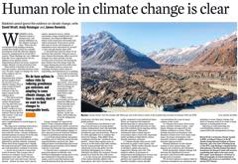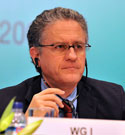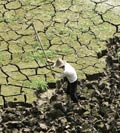Way back in the spring of 2014, NZ’s little band of climate cranks somehow managed to get a paper published based on their recalculation of New Zealand’s long term temperature record1. The effort – based on calculations done to support their infamous court case against the National Institute of Water and Atmospheric Research (NIWA), which they emphatically lost – purported to show that New Zealand’s long term warming rate was only a third of the amount previously calculated. As I pointed out at the time, it was riddled with errors and bad scholarship, but it appeared in the peer-reviewed literature2, and so required a peer-reviewed rebuttal.
It’s taken a while, but in the last few days Comment on “A Reanalysis of Long-Term Surface Air Temperature Trends in New Zealand” has been published in Environmental Modelling and Assessment3. Led by NIWA principal climate scientist Brett Mullan, the authors are Jim Salinger, who first established the NZ long term temperature record4, Professor Jim Renwick from VUW, and David Wratt, now Emeritus Scientist (Climate), at NIWA, and an Adjunct Professor in the New Zealand Climate Change Research Institute at VUW. You could fairly describe them as experts – and their “comment” might better be called a demolition.
Here’s their conclusion:
In this paper, we identify what we consider to be several methodological flaws in the [de Freitas et al] paper. We conclude that, as a consequence, the temperature trend of an increase of 0.28 °C per century for the period 1909–2009 for New Zealand land surface temperatures derived in the dFDB paper is substantially too low, and that no need has been established for significant downward revision of the trend of around 0.9 °C per century found in previous studies.
They then provide a handy summary of the main flaws – which I’ve paraphrased below:
- dFDB claimed their paper was the first to properly use a methodology developed by Jim Salinger and Rhoades, first published in 1993. It wasn’t – in two senses. It wasn’t the first, and they didn’t use it properly.
- dFDB claimed NIWA’s long term temp record was based on calculations from Jim Salinger’s PhD thesis. It wasn’t.
- dFDB’s interpretation of the Rhoades and Salinger technique was mistaken and flawed, using station overlaps that were too short and ignoring changes in maximum and minimum temperatures. The result was that they failed to make many adjustments that were required, and therefore underestimated the actual warming.
- dFDB made a few arithmetical errors, dealt with missing data incorrectly, and mishandled trends in the Auckland and Wellington series.
- dFDB ignored other lines of evidence that support warming of 0.7-1.0°C per century, such as temperature series derived by the Berkeley Earth project, the decline in NZ’s glaciers, and analyses of sea surface temperatures around NZ.
The full paper is well worth a read if you followed the arguments at the time of dFDB’s original publication. It’s an elegant and polite deconstruction of a shoddy, politically motivated piece of work that should never have passed peer review first time round. It should make uncomfortable reading for the remaining authors of dFDB (2015) and their promoters, if they were real scientists rather than propagandists. But they’re not.
- A Reanalysis of Long-Term Surface Air Temperature Trends in New Zealand by CR de Freitas & MO Dedekind & BE Brill (DOI 10.1007/s10666-014-9429-z) [↩]
- The lead author, Chris de Freitas (who died last year), had a notable track record of helping rubbish through peer review. [↩]
- Comment on “A Reanalysis of Long-Term Surface Air Temperature Trends in New Zealand”,Mullan, B., Salinger, J., Renwick, J. et al. Environ Model Assess (2018). https://doi.org/10.1007/s10666-018-9606-6 [↩]
- Jim is currently a visiting professor at the Department of Geography and Environmental Studies, University of Haifa, Mt Carmel, Israel. [↩]


 The Dominion Post, which blotted its editorial copybook last week by publishing a factually incorrect and highly misleading
The Dominion Post, which blotted its editorial copybook last week by publishing a factually incorrect and highly misleading  Swiss climate scientist
Swiss climate scientist  The IPCC released the summary for policymakers of its Special Report on Managing the Risks of Extreme Events and Disasters to Advance Climate Change Adaptation (SREX) in Kampala, Uganda, on Friday (
The IPCC released the summary for policymakers of its Special Report on Managing the Risks of Extreme Events and Disasters to Advance Climate Change Adaptation (SREX) in Kampala, Uganda, on Friday (